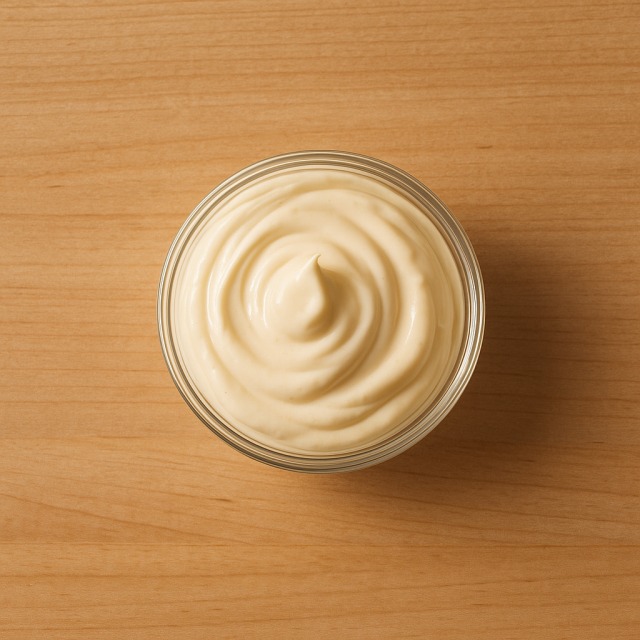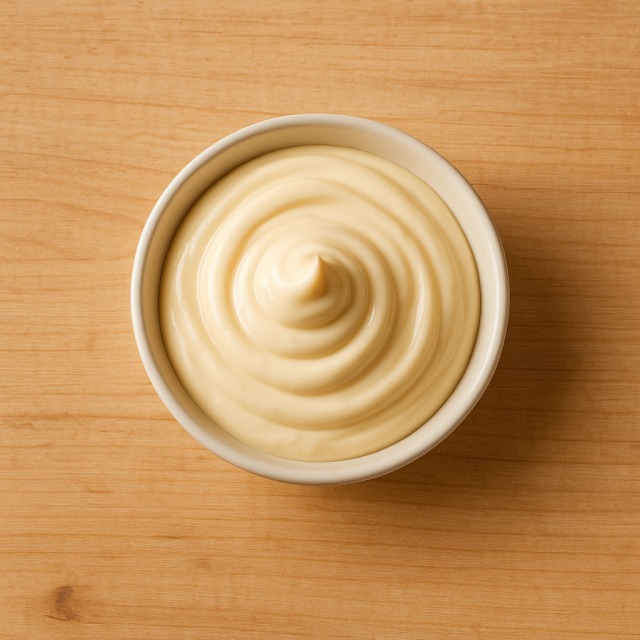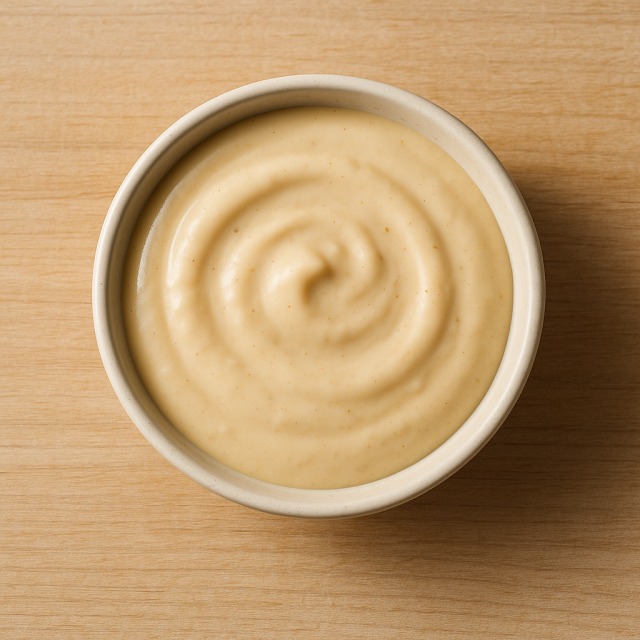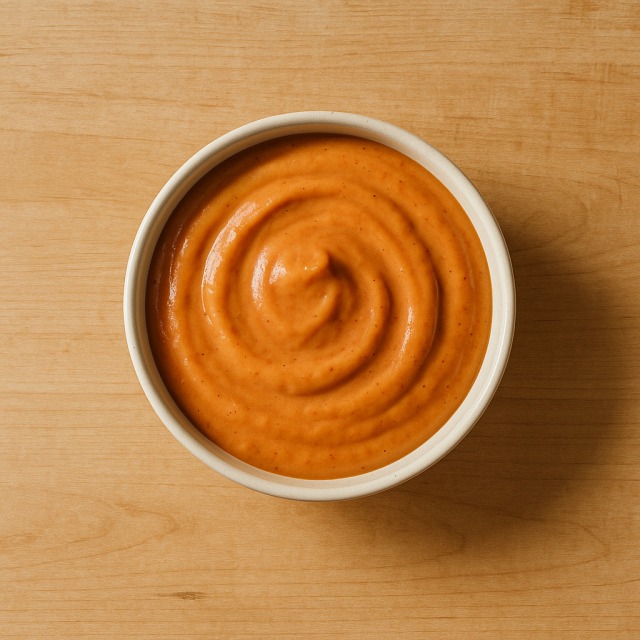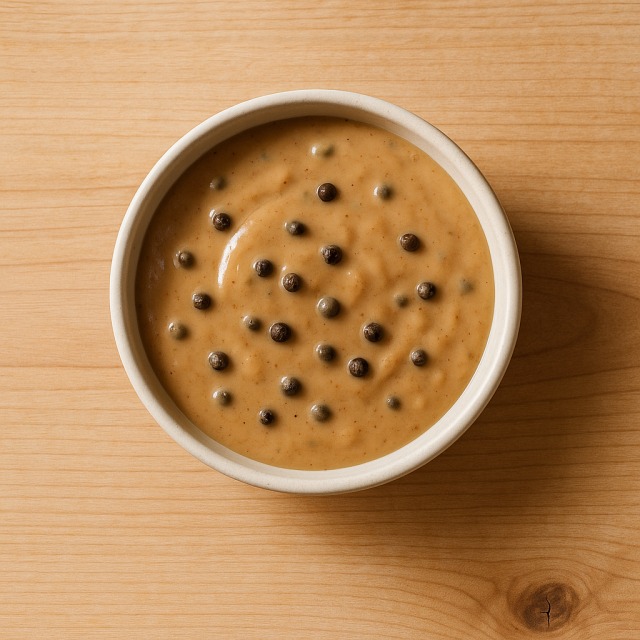Calorie Chart / Seasoning & Sauces / Ketchup
How Many Calories Are in Ketchup?
Calculation of the nutritional value & Recommended Dietary Intake of ketchup
For g and a calorie requirement of kcal
| Calories 18 kcal | Proteins 0.3 g | Lipids 0.1 g | Carbohydrates 4.1 g |
| 1% | 0% | 0% | 1% |
Health benefits of ketchup

Ketchup - 100g
Calories 120 kcal
Proteins 2 g
Lipids 0.4 g
Carbohydrates 27 g
Ketchup is a tomato-based condiment offering a moderate-calorie profile: with 120 calories per 100 g, it supplies flavor without an excessive calorie burden. These calories mainly come from the 27 g of carbohydrates, while lipids remain negligible.
Beyond its calories, ketchup provides small amounts of vitamin A (from beta-carotene), vitamin C, and the antioxidant lycopene, the pigment that gives tomatoes their red color. Several studies associate lycopene with supposed protection against certain cardiovascular issues, although the link is still considered "supposed." Even in modest portions, the condiment can enrich a meal without inflating the calorie tally.
Sodium and vinegar give ketchup its conservation power; mindful consumers should watch their sodium intake but can still enjoy reasonable servings when tracking calories. Historically, the word "ketchup" comes from the Hokkien Chinese "kôe-chiap," a fermented fish sauce imported to Europe in the 18th century. Sugar was added later in America, which lifted the calories slightly yet kept fat extremely low.
Overall, ketchup counts as a moderate-calorie flavor enhancer: neither as light as plain vinegar nor as dense as mayonnaise. Used wisely, its calories can fit smoothly into most nutritional plans.
Tips for incorporating ketchup into a balanced diet
To integrate ketchup while controlling calories, try glazing a grilled chicken breast with one tablespoon (≈18 calories) mixed with smoked paprika. The lean proteins compensate for the condiment's sugars and help keep total calories in check.
Swap deep-fried French fries for oven-baked potato wedges seasoned with herbs; a light dip of ketchup will satisfy the craving while shaving dozens of calories off the meal. Remember: portion size is the main driver of condiment calories.
For a quick sauce, blend two parts ketchup with one part 0% fromage blanc and a dash of mustard. This stretches flavor, cuts calories per spoon, and adds extra proteins.
Fans of Tex-Mex can brush ketchup, cumin, and garlic on roasted zucchini ribbons; the vegetables are naturally low in calories, so the overall calories stay moderate.
Finally, in homemade barbecue sauce, mix ketchup, honey, and apple cider vinegar. Use it sparingly on a lean pork tenderloin; you'll enjoy smoky sweetness with minimal additional calories compared with commercial sugar-laden sauces.
Frequently Asked Questions
- How many calories are in ketchup?
- There are 120 kcal per 100 g.
- Does ketchup make you gain weight?
- Weight gain depends on total daily calories; ketchup adds only moderate calories, but its sugars can accumulate if portions are large.
- How many calories are in a tablespoon of ketchup?
- One tablespoon of ketchup (≈15 g) delivers about 18 calories, a handy reference for people counting calories at each meal.
- Is sugar-free ketchup lower in calories?
- Yes, most sugar-free versions reduce both sugars and calories by 30–50%, making them useful when you need to cut calories further.
- Does heating ketchup in cooking change its calories?
- Cooking may reduce water content slightly, but the calories remain virtually the same; any change in calories is negligible.
Similar foods
Information provided by Calorie Menu may contain inaccuracies or errors. It cannot, under any circumstances, substitute medical advice or medication.

